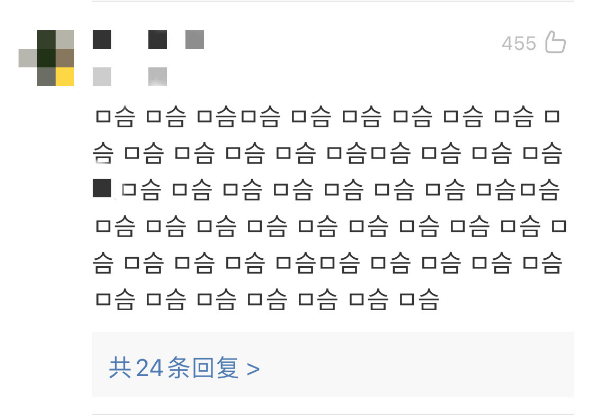Archive for Diglossia and digraphia
January 17, 2026 @ 10:12 am· Filed by Victor Mair under Colloquial, Diglossia and digraphia, Language and computers, Phonetics and phonology, Typography, Writing systems
No sooner had I posted about a block of 11,328 proposed Small Seal characters dating back roughly two millennia being incorporated in UNICODE than a single spanking new sinograph surfaced and was urgently put forward for inclusion, and it is causing a bit of a ruckus. That is the third-person gender-neutral pronoun [X也], which is pronounced the same as all the other characters for supposedly gendered Sinitic third-person pronouns, viz., tā (see below for their graphic forms).
N.B.: The proposed neograph under dicussion is provisionally being written as [X也], but bear in mind that, as I have pointed out countless times, all sinographs, by the exigencies / inherent nature of the script, whether they have 1 stroke or 64 / n strokes, must be squeezed inside the same size box as all other sinographs. In other words, [X也] perforce — once the typographers get it worked out — will eventually have to fit inside exactly the same space as 也 and biáng (you can get an authentic plate of these belt-like Shaanxi noodles at Xi'an Sizzling Woks, 40th & Chestnut in University City next to Penn [opens at 11:30 AM, closed on Tuesdays]). There are many Language Log posts about diverse aspects of this jabberwockyish character. Just look it up under "biang"
Read the rest of this entry »
Permalink
July 10, 2022 @ 4:41 am· Filed by Victor Mair under Diglossia and digraphia, Emojis and emoticons, Information technology, Language and computers, Language teaching and learning, Typing, Writing systems
[This is a guest post by Paul Shore.]
The 2022 book Kingdom of Characters by Yale professor Jing Tsu is currently #51,777 in Amazon's sales ranking. (The label "Best Seller" on the Amazon search-results listing for it incorporates the amusing mouseover qualification "in [the subject of] Unicode Encoding Standard".) I haven't read the book yet: the Arlington, Virginia library system's four copies have a wait list, and so I have a used copy coming to me in the mail. What I have experienced, though, is a fifty-minute National Public Radio program from their podcast / broadcast series Throughline, entitled "The Characters That Built China", that's a partial summary of the material in the book, a summary that was made with major cooperation from Jing Tsu herself, with numerous recorded remarks by her alternating with remarks by the two hosts: https://www.npr.org/podcasts/510333/throughline (scroll down to the May 26th episode). Based on what's conveyed in this podcast / broadcast episode, I think many people on Language Log and elsewhere who care about fostering a proper understanding of human language among the general public might agree that that ranking of 51,777 is still several million too high. But while the influence of the book's ill-informed, misleading statements about language was until a few days ago mostly confined to those individuals who'd taken the trouble to get hold of a copy of the book or had taken the trouble to listen to the Throughline episode as a podcast (it was presumably released as such on its official date of May 26th), with the recent broadcasting of the episode on NPR proper those nocive ideas have now been splashed out over the national airwaves. And since NPR listeners typically have their ears "open like a greedy shark, to catch the tunings of a voice [supposedly] divine" (Keats), this program seems likely to inflict an unusually high amount of damage on public knowledge of linguistics.
Read the rest of this entry »
Permalink
April 28, 2022 @ 8:50 am· Filed by Victor Mair under Alphabets, Diglossia and digraphia, Language and computers, Language loss, Writing systems
Last week, I witnessed a palpable, powerful, poignant demonstration of tíbǐwàngzì 提筆忘字 ("forgetting how to write sinographs; character amnesia"). This happened in a colloquium where, during the discussion period, someone mentioned the standard eight-volume Historical Atlas of China (1982-1988) edited by the renowned geographer Tan Qixiang (1911-1992). A member of the gathering requested that the name be written on the whiteboard in sinographs. A colleague — a tenured professor of medieval Chinese history — popped up and said they could write the name in characters.
Already a little bit wobbly on the semantophore / radical on the left side of the first character (the surname), with a little bit of kibitzing from colleagues, the volunteer managed to produce the requisite semantophore after several false starts and erasures. After that great achievement (producing the semantophore amid much embarrassment), they turned to the phonophore on the right side but were getting nowhere fast, even with suggestions from colleagues who were looking on.
Finally, someone looked up the name on their phone and presto digito*, the correct writing emerged: 譚其驤 / 谭其骧 (the group — scholars all — collectively preferred the traditional form over the simplified one).
—–
[*VHM: I remember hearing this expression when I was young, but it barely exists on the internet, and I can't find it in dictionaries either.]
Read the rest of this entry »
Permalink
January 23, 2022 @ 8:51 pm· Filed by Victor Mair under Diglossia and digraphia, Emojis and emoticons, Information technology, Language and computers, Language teaching and learning, Typing, Writing systems
Trying to clear up the confusion between the two is a battle we have been waging for decades, and nowhere is the problem more severe than in the study of Sinitic languages and the Sinographic script. The crisis (not a "danger + opportunity"!) has come to the surface again this month with the appearance of a new book by Jing Tsu titled Kingdom of Characters: The Language Revolution That Made China Modern (Riverhead Books, 2022).
The publication of Tsu's book has generated a lot of excitement, publicity, and reviews. Here I would like to call attention to the brief remarks of an anonymous correspondent (a famous, reclusive linguist) that are right on target:
Reimagining "antiquated" Chinese
Reproduced below is the text of a book review in Science that you may not have seen. It is classified as "Linguistics", though the reviewer is a historian at Cal State Poly, Pomona. Notice that Chinese is assumed to be "antiquated" and in need of being "reimagined"! There is simply no sign of Science understanding the difference between a human language and a writing system. This is consistent with the way they have always treated linguistics; they have no idea what the subject really is.
Read the rest of this entry »
Permalink
December 29, 2021 @ 9:47 am· Filed by Victor Mair under Alphabets, Diglossia and digraphia, Humor, Language play, Writing systems
Occasionally I see pinyin (spelling) interspersed with Sinographs (usually for phonetic annotation), but this one threw me for a loop:
Yěxǔ (jué duì) shì, gāi lǐngyù zuì qiángdà de jiǎngzhě zhènróng.
也许(jué duì)是,该领域最强大的讲者阵容。
"Perhaps (definitely) it's the case that this is the strongest lineup of speakers in this field.
It occurs about two thirds of the way down in this Chinese article.
Read the rest of this entry »
Permalink
December 18, 2021 @ 11:40 am· Filed by Victor Mair under Bilingualism, Diglossia and digraphia, Language play, Multilingualism, Puns, Signs, Tones, Topolects, Writing systems
Mark Swofford sent in this photograph of a clever, curious sign at an automobile repair shop in Taiwan:

Read the rest of this entry »
Permalink
October 24, 2021 @ 2:18 pm· Filed by Victor Mair under Acronyms, Alphabets, Diglossia and digraphia, Writing systems
Since the vast majority of inputting in the PRC is done via Hanyu Pinyin, netizens are thoroughly familiar with the alphabet and use it regularly as part of the Chinese writing system.
One common usage for the alphabet in the PRC is acronymically to designate frequently encountered Mandarin phrases. In "The Chinese Internet Slang You Need to Know in 2021", CLI (10/19/21), Anias Stambolis-D'Agostino introduces six popular online acroyms:
1. yyds (永远的神)
永远的神 (yǒngyuǎn de shén; yyds) means “eternal God” and describes an outstanding person or thing. It's similar to the saying GOAT (Greatest of All Time) in English. The phrase is often used by fans to praise their idols or simply to describe something they are fond of.
For example:
-
- 桂林米粉太好吃了,桂林米粉就是yyds!
- Guìlín mǐfěn tài hàochī le, Guìlín mǐfěn jiùshì yyds.
- Guilin rice noodles are delicious, they’re just yyds!
Here's another example:
-
- 李小龙的中国功夫太厉害了,他就是yyds!
- Lǐxiǎolóng de Zhōngguó gōngfū tài lìhài le, tā jiùshì yyds
- Bruce Li’s kung fu skills are so good, he’s such a yyds!
Read the rest of this entry »
Permalink
July 18, 2021 @ 5:31 am· Filed by Victor Mair under Diglossia and digraphia, Information technology, Language and computers, Lost in translation, Writing systems
From a manual for a thermal printer:
Dǎyìn kòngzhì bǎn nèizhì GB18030 Zhōngwén zìkù, chèdǐ miǎnchú shēngpì zì de kǔnǎo
打印控制板内置 GB18030 中文字库,彻底免除生僻字的苦恼
Printer control panel built-in GB18030 Chinese character, thoroughly remove the uncommon words of anguish
(courtesy of Amy de Buitléir)
A more accurate English translation would be:
Printer control panel with built-in GB18030 Chinese character font, thoroughly removing the anguish brought about by uncommon / obscure characters
"GB" stands for "guóbiāo 国标" ("national standard"), and is used for many technical terms in the PRC (another instance of encroaching digraphia, for which see here and here [with extensive bibliography]).
Read the rest of this entry »
Permalink
December 22, 2020 @ 1:37 pm· Filed by Victor Mair under Diglossia and digraphia, Language and advertising, Language and food, Multilingualism, Puns
Mark Swofford sent this photograph of a dish on a menu in a Taiwanese restaurant chain:

Read the rest of this entry »
Permalink
October 24, 2020 @ 7:49 pm· Filed by Victor Mair under Diglossia and digraphia, Reconstructions, Transcription
With notes on 兑, 說 / 説, 悦, 銳, 脱.
From Stephen Tschudi:
A colleague was watching a tuōkǒu xiù 脱口秀 ("talk show") online today, and was shocked when a well-known actress did not pronounce "duìxiàn 兑现" (vb. "cash [a check]; fulfill / honor [a promise / commitment]") correctly. She was even more shocked when, in the audience chat that was scrolling across the screen, an audience member typed "dui 现不是 yue 现“ (no tone marks). The Pinyin leaped out at her visually. I bet there aren't too many examples of this mixture of Pinyin into daily discourse. Just an interesting tidbit! (I asked her for the source but she was watching too casually to remember.)
Read the rest of this entry »
Permalink
September 18, 2020 @ 10:19 pm· Filed by Victor Mair under Alphabets, Diglossia and digraphia, Writing systems
Screenshot of a comment on a funny video on Weibo:

Read the rest of this entry »
Permalink
September 13, 2020 @ 7:15 pm· Filed by Victor Mair under Diglossia and digraphia, Morphology, Orthography, Writing systems

Sok3 Kei1
索K
‘to inhale, ingest, take Ketamine, which is an illegal drug in Hong Kong’
["Ketamine is a medication mainly used for starting and maintaining anesthesia. It induces a trance-like state while providing pain relief, sedation, and memory loss. Other uses include sedation in intensive care and treatment of pain and depression." Source]
Read the rest of this entry »
Permalink



